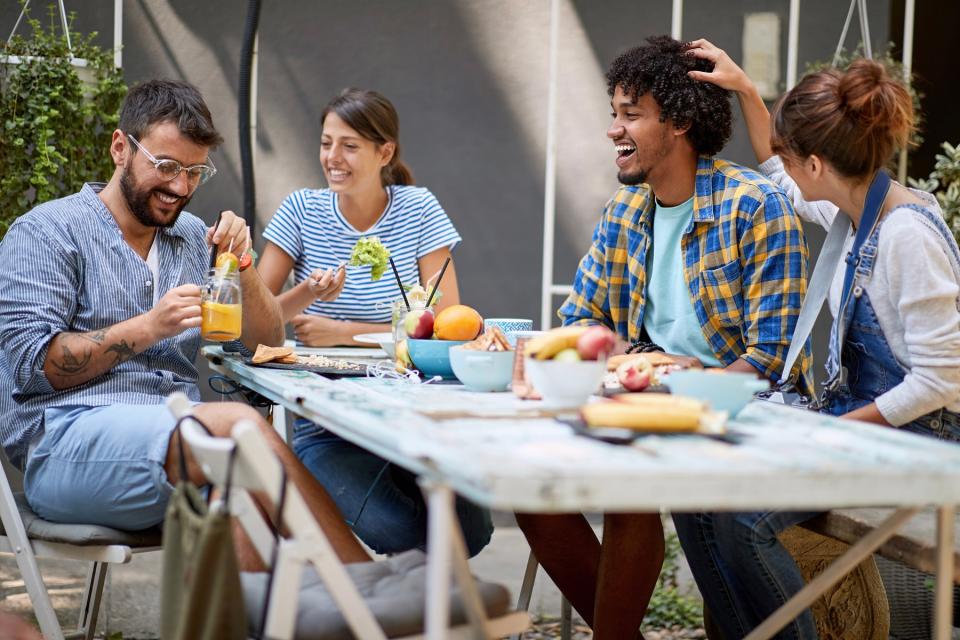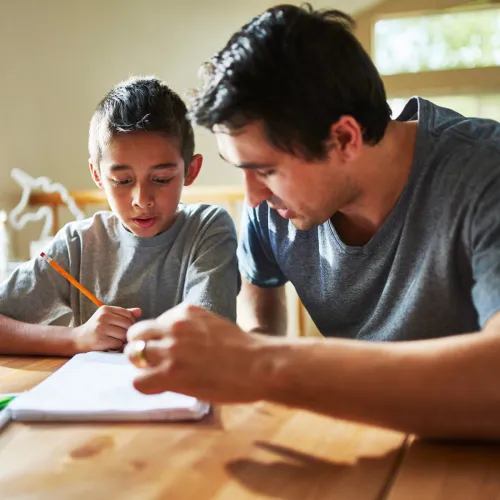We Asked: How Do Co-Parents Take Care of Their Mental Health?
Co-parenting can really take a toll on your mental health. We asked subscribers of The Spark, our newsletter for co-parents, how they care for their mental health amidst the stressors of co-parenting.
There were too many great responses to fit them into the newsletter. So here’s a blog post featuring 30 co-parents’ experiences with managing their mental health while co-parenting.
If you only read one quote, read this one (it’s quite comprehensive):
“As low contact as possible w/ co-parent. Therapy for myself and child. Rebuilding a social network for self and child. Physical activity every day. Nervous system regulation (meditation, breathing, mindfulness, journaling, etc). Hobbies and play for self and child, together and separately. Focus on physical health - nutrition and sleep. Focus on the good and things that are within my control.”
Limit communication
When communication is ugly, the best step is to keep it minimal. Of course, you can’t control how or how much your co-parent messages you. But you can do three things:
- Use the BIFF strategy (brief, informative, friendly, firm)
- Only communicate about the kids—not the past or your personal lives
- Insist on only communicating through a co-parenting app
“I try to have as little communication as possible with my ‘co-parent’ as he is completely unable to communicate and co-parent civilly.”
“Minimizing communication as much as possible and keep the conversation kid focused.”
“The less contact the better.”
Adjust your mindset
We have more control over our mental approach than we often think. Proactively choosing a different mindset, and then deliberately choosing thoughts that fit the new mindset, can really change your co-parenting experience.
“Reminding myself that the love I have for my daughter is bigger than the craziness he creates.”
“Focusing on what's within my scope of influence then working to let go of the rest.”
“A psychiatrist, therapist, and making sure I give myself grace and time for rest.”
“Focus on the things within my control and let go of the actions of others I can't control. Accept that the other parent will never handle situations as I do or parent as I do.”
Set boundaries
Setting boundaries is tough, but it makes a long-term difference. Sticking to your parenting plan is one easy way to set boundaries, although you may need more.
“Setting boundaries and distance from my ex is the best thing I ever did for my mental health. The day that I no longer have a court order with my ex through the system, will be the day I throw myself a party because my mental health will be free of the toxic, ongoing stress he creates.”
“Surfacing and stating my needs/boundaries, holding firm boundaries and not getting swept up in my ex's negative/emotionally draining drama or communication patterns, inserting a pause and avoiding reactive co-parenting or communication, practicing intentionally assuming the best and not stroking my ego by saying/doing things that will just stoke the fire. …Definitely getting excellent practice at letting go of emotional engagement and only engaging when it's needed for our kid.”
“Boundaries and properly using OFW for keeping boundaries.”

Look to your social supports
Co-parenting can be an intensely lonely experience, but finding other divorced or separated parents can be a real comfort. It helps, however, if you set yourself up to vent in a healthy way, so that you feel relief instead of falling deeper into distress.
(You can also sign up for our newsletter, where you can hear from other co-parents and share your own ideas and experiences, too.)
“Talking to other divorced parents (venting to each other/sharing advice), knowing that everything is documented on OurFamilyWizard app, researching articles & joining support groups for divorced parents & support groups for survivors of domestic violence, etc.”
“Another thing that helped my mental health was strengthening the bonds I had with my friends. It’s important to find people who will be honest with you, but also tell you uncomfortable truths that you have to hear. If you strengthen you (your work, co-workers, friends, relationships etc), then your kids can see the example you set. They learn so much by example. If your kids see & feel your sense of security, it will help them feel secure too.”
“Building meaningful relationships with friends (that wasn't encouraged during my marriage) and only venting/processing with a few people who are excellent friends/listeners.”
“Seeing a therapist and creating a small group of friends I can talk about custody stuff to. I try to keep it out of my life in general, but I have a small group of friends I can vent to.”
Consider going to therapy
We’re huge believers in therapy. You don’t even need to have a specific mental health condition to see a therapist—going through a stressful situation is a completely sufficient reason.
If you are dealing with specific serious issues, you may be able to find a therapist who specializes in anxiety, depression, PTSD, or domestic violence issues.
“Therapy for me, therapy for my kid, safe spaces to talk about the reality of coparenting with an abuser, staying in close touch with my lawyer and mediator, being validated as a survivor of abuse (as he denies it).”
“Breathing. Meditation. Speaking with therapy. Seeking DVI counseling and staying current on sessions.”
Consider seeing a psychiatrist
A psychiatrist, unlike a therapist, is a medical doctor who prescribes mental health medications. If your anxiety, depression, or PTSD is interfering with your daily life, ask your therapist or general doctor for a referral to a psychiatrist, who can then evaluate whether medications could help you. Talk to your doctor or therapist to learn more.
“Close family and friends as support, physically working out, correct sleep and speaking to a therapist and occasional anxiety medication.”
“Breathing and anxiety medicine.”
Use OurFamilyWizard
The OurFamilyWizard co-parenting app is designed to minimize conflict by keeping everything organized and on the record. It even reduces communication because you can often use the specialized features instead of sending a message. For example, you can send a schedule change request form through the Calendar instead of sending a message asking to change the schedule.
“OurFamilyWizard has helped because I can control when I want to deal with messages and not feel obligated to immediately answer a text. I also see a therapist every two weeks who helps me get out of my head and see the full picture.”
“Keeping all contact to OFW. Exchanges through the school so contact was very limited between myself and the other co parent. Also learning how to BIFF which is a way to communicate with high conflict individuals.”
“The OurFamilyWizard app, documentation, letting go of what I can’t control. The app makes me feel safer with a coparent that isn’t a safe person.”
Consider parallel parenting
Parallel parenting is an alternative to co-parenting that can reduce conflict. If you feel like your co-parent only counter-parents, you may want to talk to your therapist, parenting coordinator, or attorney about parallel parenting.
“Parallel parenting rather than co-parenting.”
Get enough sleep
Sleep has a massive impact on your mental health. You can’t opt out of co-parenting, but you can opt in to regular sleeping hours. Try to stick to the same hours every night, and get at least eight hours.
“Seeing a counselor helps, but exercise, sleeping and eating well help soooo much too!”
Exercise
Exercise also directly influences mental health. Even taking a short walk every day can make a difference.
“Exercise, talking to family and friends, self-care, psychiatric medication.”
Prioritize self-care
There are many different ways to take care of yourself, but meeting your own needs through self-care is a wonderful way to feel better inside and to be a more present parent.
“Building compartmentalization skills, staying focused on my kid and not myself/my feelings, finding ways to enjoy the time away from my kid and get my needs met so I can show up as the parent he needs, therapy.”
“Taking the time I don’t have the kids to rest and regroup.”
“Therapy, exercise, breathing exercises and acupuncture.”
“Remaining active (running daily) and doing things that I love outside of parenting such as reading and gardening.”
“Setting good boundaries, utilizing the family wizard app to its max potential, prioritizing self care time every day, engaging in yoga/meditation practices regularly, making sure I am bringing the right nutrition I to my body to support my mental health.”
Thank you to everyone who responded to the poll!
We really appreciate everyone’s input, and we’re privileged to give you a platform to share your ideas and encouragement with other co-parents.
To participate in future polls, sign up for the newsletter here. We’d love to hear your perspective!



